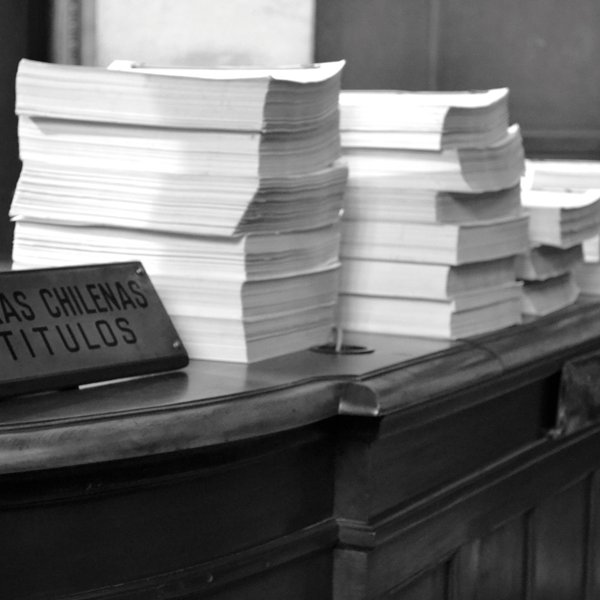Becoming an art document: archive, declassification and human rights
Following in its line of investigation into the nature of archives and their impact on the construction of memory, the MACBA Study Center presents this round table in the context of the curatorial research project Human Rights/Copy Rights, curated and edited by Cristián Gómez-Moya. The curatorial project was held at the Museo de Arte Contemporáneo (MAC) of the University of Chile in 2011 and culminated in the publication of Human Rights/Copy Rights. Visual Archives in the Age of Declassification, in 2013 (VID-Creación, Universidad de Chile). The project is centred on the study of the mechanisms for visual mediation of memory at the time of the declassification of political files in Latin America after the dictatorships.
Within these visual devices for mediation, we can include the museum of contemporary art, with its archives and documentation centres, as well as other more sophisticated forms, organised around virtual archive spaces or curating art records and documents.
In the face of the various methods of declassification that have been exerted worldwide, this discussion on the archive of human rights in the field of contemporary art needs to confront various symptoms, especially that which determines the lifestyle of a document and what some authors call the ‘becoming document’. The declassification of documents on human rights allows us not only to know and remember the historical and political past inscribed in the ruins of memory, but also brings these documents to life every time they are copied and reproduced from online databases.
This global symptom whereby declassification becomes a contemporary art document leads us to question the effects that such liberation has on geopolitical violence in the context of memory. The memory of human rights, trapped between the politics of secrecy and freedom of information, cannot escape this concern, especially when what lies behind the documents are lives.
The round table takes place on the occasion of the launch of Human Rights/Copy Rights. Visual archives at the Time of Declassification (VID-Creación, Universidad de Chile). The culmination of this project, the book focuses on the dialectics between political archive and contemporary art document.
Speakers: Daniel G. Andújar, Lee Douglas, Jorge Blasco and Cristián Gómez-Moya
Works by writers, filmmakers and artists in the publication: Jorge Blasco, Alejandra Castillo, Gonzalo Díaz, Lee Douglas, Daniel G. Andújar, Federico Galende, Soledad García-Saavedra, Voluspa Jarpa, Claudia Missana, Luz Muñoz i Miguel Valderrama.

Programme
TUESDAY 25 FEBRUARY FROM 7 TO 8.50 pm
The documentation room of the Study Center will exhibit the following: Re-trazando un relato (Re-tracing a story), by Luz Muñoz (2011); Archivos Virtuales / Lecturas Inconclusas, verdades erráticas (Virtual Archives / inconclusive readings, erratic truths), by Voluspa Jarpa (2011); and CA.DA.VER., a video-interview with Gonzalo Díaz (2010).
The book will be available for consultation and for sale at La Central bookshop.
Jorge Blasco G. Researcher and writer.
Lee E. Douglas anthropologist and photographer.
Daniel G. Andújar Visual artist, theorist and media critic.
Cristián Gómez-Moya Researcher and curator in contemporary art.
programespublics [at] macba [dot] cat
Tel. 93 481 46 81


